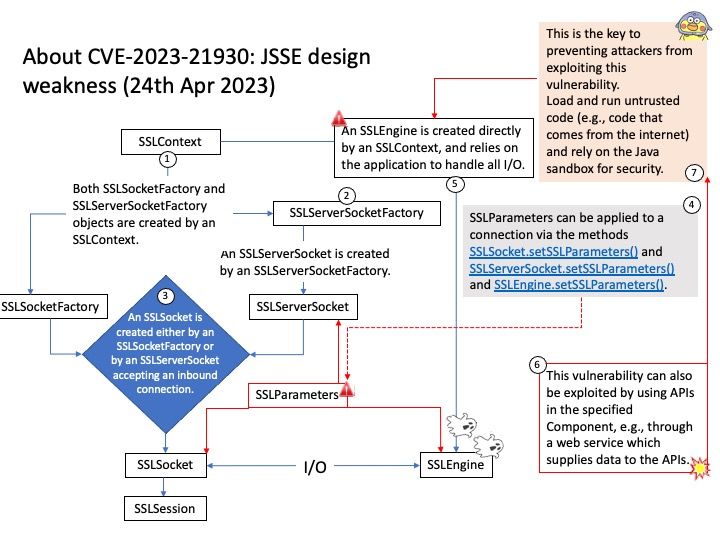
Preface: The goal is to make internal adjustment to the design of security classes (including the SecurityManager and ClassLoader classes) to reduce the risks of creating subtle security holes in future programming.
Background: The Java Secure Socket Extension (JSSE) enables secure Internet communications. It provides a framework and an implementation for a Java version of the SSL and TLS protocols and includes functionality for data encryption, server authentication, message integrity, and optional client authentication.
JSSE provides both an application programming interface (API) framework and an implementation of that API. The JSSE API supplements the core network and cryptographic services defined by the java.security and java.net packages by providing extended networking socket classes, trust managers, key managers, SSL contexts, and a socket factory framework for encapsulating socket creation behavior. Because the SSLSocket class is based on a blocking I/O model, the Java Development Kit (JDK) includes a nonblocking SSLEngine class to enable implementations to choose their own I/O methods.
Vulnerability details: This vulnerability can also be exploited by using APIs in the specified Component, e.g., through a web service which supplies data to the APIs.
Impact: Vulnerability in the Oracle Java SE, Oracle GraalVM Enterprise Edition product of Oracle Java SE (component: JSSE). Supported versions that are affected are Oracle Java SE: 8u361, 8u361-perf, 11.0.18, 17.0.6, 20; Oracle GraalVM Enterprise Edition: 20.3.9, 21.3.5 and 22.3.1.
Official announcement: Refer the link for details – https://nvd.nist.gov/vuln/detail/CVE-2023-21930